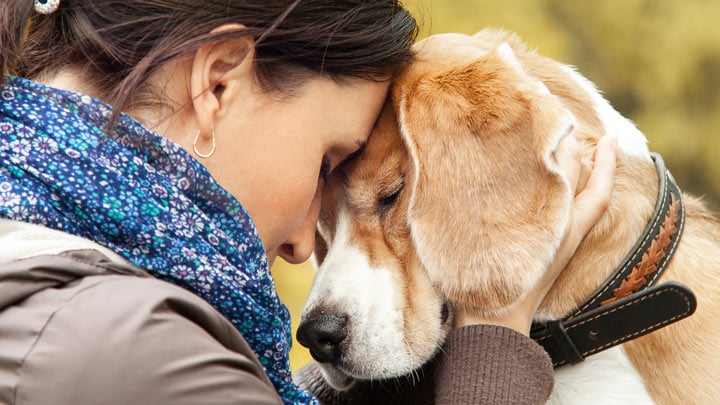Canine Brucellosis: diagnosis, symptoms and treatment
Canine Brucellosis in the UK
If you bought your first dog in lockdown or added to your fur family, you’re in good company – 3.2 million households have welcomed a new pet since the Covid pandemic started and there are now an estimated 13 million homes with dogs.

While the vast majority of owners are simply enjoying their new canine friends, the explosion in dog ownership has a darker side with vets experiencing an increase in diseases and conditions not normally seen in the UK.
In 2020, there were 40 recorded cases of a disease called Canine Brucellosis compared to just two before, and vets suspect it’s due to the number of dogs being imported from abroad.
Other rare illnesses have been spotted too with a 2018 survey by the British Veterinary Association revealing 40% of companion animal vets had seen new or rare conditions in UK pets. Some of these were potentially zoonotic, meaning they could also infect humans.
While it’s nothing to be too worried about, it is something to be aware of so you can make sure you and your dog stay healthy.
What is Canine Brucellosis?
Canine Brucellosis is a condition which affects a dog’s ability to breed but can also impact other organs as well. Human to human transmission is rare but it does occur with the very young, elderly and pregnant women most at risk.
The disease is caused by a bacterium called Brucella Canis. It is most commonly found in animals coming from Eastern Europe and in particular, from Romania. You’ll also find it in other EU countries and elsewhere in the world.
Dogs of any age can contract Brucella but it’s more common in mature dogs. It is passed on through contact with infected bodily fluids.

What are the symptoms of brucellosis in dogs?
Many dogs will show no signs of infection at all, but these are some of the symptoms your dog might experience:
- Lethargy
- Lameness (back pain)
- Difficulty walking
- Weak, small and sickly puppies
- Miscarriage
- Swollen lymph nodes
- Persistent vaginal discharge or swollen testicles
- A rash on their scrotum
Dogs with Brucellosis will often miscarry a first pregnancy and become infertile. If they do manage to become pregnant, they may go to term but the puppies can be weak and may die soon after birth. Apparently healthy puppies can also be infected and suffer lifelong health problems.
How is Canine Brucellosis diagnosed in dogs?
Brucellosis is quite tricky to diagnose and your vet may need to carry out several tests to confirm it including x-rays, bacterial cultures, blood tests and specific tests for the disease.
Canine Brucellosis treatment
While there are treatments that can help your dog there is no cure so if they become infected, they’re infected for life. They may suffer some symptoms or they might not show many signs at all. Antibiotics can help manage the condition but won’t completely clear it - they can continue to shed bacteria and potentially infect other animals.
In practice it means that while Brucellosis isn’t immediately life threatening it can have a huge impact on a dog’s quality of life.

What does canine brucellosis do to humans?
In humans, and while Brucellosis is still rare, it can cause fever, chills, headaches, night sweats, swollen lymph glands fatigue and weight loss. In pregnant women, there is a greater risk of miscarriage, foetal death and premature labour.
Life of an infected dog
Sadly Brucella is a lifelong infection and one that has a big impact on the quality of life of infected dogs. They mustn’t mix with other animals, which means you need to avoid areas that are frequented by other dogs. As many dogs are social creatures, this can have a detrimental effect on their ability socialise and interact with their surroundings. They should also not be close to pregnant women or those that are trying to conceive.
It is possible for a pet to live with Brucella, but this has to be weighed up against the quality of life for the pet.
What to consider before you import a dog from abroad
If you’re thinking adopting a dog from abroad you need to ask the rescue centre plenty of questions about the animal’s health. You also need to arrange for tests to be carried out by a vet in the country they are coming from and make sure you see evidence of a negative test from a laboratory before you bring them over.
Brucellosis isn't the only disease that a foreign dog can harbour – there are a whole range of illnesses which aren’t commonly seen in the UK and it’s sensible to make sure your new pet is fit and healthy. Once they’re in the UK it’s a good idea to get your dog retested to confirm they aren’t carrying any unexpected diseases.
If you’ve already imported your pet, then again, make sure you get them tested and confirm they’re free from infection. By law, vets must report any Brucellosis infections to the Government.
An increase from two to 40 cases doesn’t sound like a lot in the grand scheme of things but in percentage terms it’s huge. While thankfully, cases are still very low in relation to Britain’s estimated 13 million canine population it’s important to be vigilant.
If you’re worried about your dog’s health speak to your vet who will be able to give you the best advice.
Book an appointment through My Medivet
Medivet clients can book and amend appointments online, access pet records and more.

